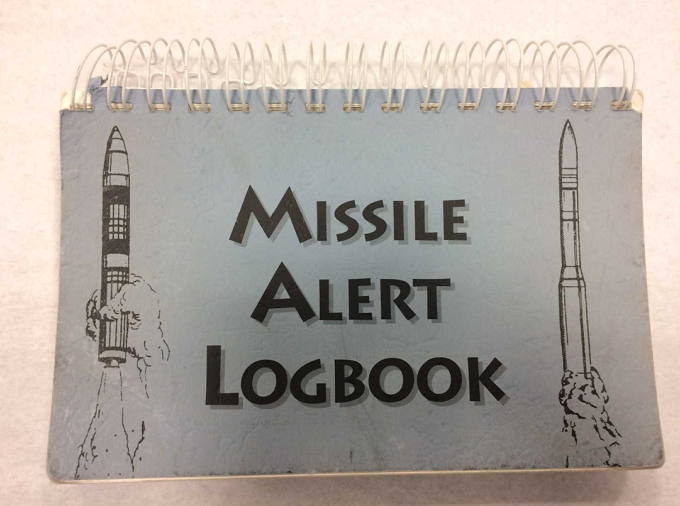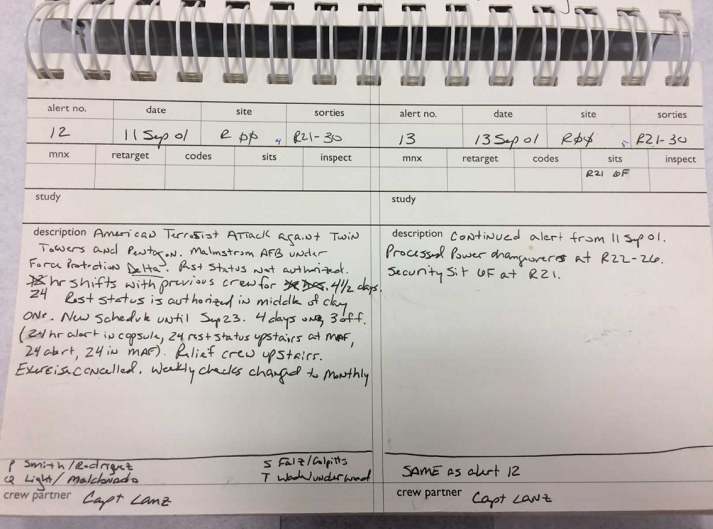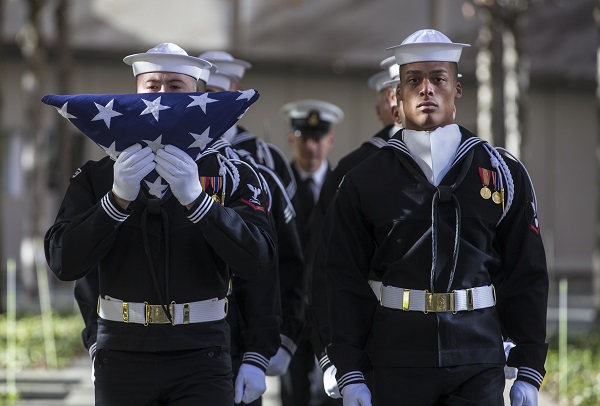Make a donation to the museum
A Missileer Recalls Uncertainty in the Days Following 9/11
A Missileer Recalls Uncertainty in the Days Following 9/11

On Sept. 11, 2001, United States Air Force Lt. Col. Brande H. Walton was serving as an intercontinental ballistic missile (ICBM) nuclear launch officer stationed at Malmstrom Air Force Base in in Great Falls, Mont. As a “missileer,” Walton had responsibility for operating underground missile systems at launch control centers located throughout Montana, as part of a two-person team on duty for dedicated 24-hour shifts.
On 9/11, Walton was in a briefing when reports of the first strike on the World Trade Center reached her. The colonel leading the briefing seemed perplexed by the news, and he initially surmised that the crash must have been an unusual accident. The strike on the South Tower seventeen minutes later made it clear the United States was under attack.
Walton recalled that the group was thrown into “Threat Condition Delta,” indicating that another attack could be imminent. All missile combat crew members were ordered to report to the missile alert facilities throughout the state. Walton, her crew partner and the base chef/facility manager were dispatched to the nearest facility, located about a half-hour drive from Malmstrom. En route, they listened to news radio reporting more late-breaking news of the terrorist attacks.
Upon reaching the missile alert facility, they were briefed by security forces before Walton and her crew partner entered the underground capsule to relieve the pair of missileers who had been covering the previous 24-hour shift. Under normal circumstances, the relieved missileers would have proceeded to their respective homes or back to base for rest. However, under these exceptional circumstances, they remained on duty for another 24 hours, and they would switch off with Walton’s team in this capacity for five full days. The grueling nature of their schedule, under continual revision as new updates arrived about the attacks, is demonstrated in the notes that Walton jotted down in her missile alert logbook.
“Terrorist attack against Twin Towers and Pentagon,” Walton wrote. “Malmstrom AFB under force protection delta. Rest status not authorized. 12 24 hr. shifts with previous crew for 48 hrs. 4 ½ days.”

Walton donated her logbook to the 9/11 Memorial Museum to emphasize that all sectors of the military were on high alert in the tense period immediately following the attacks. She wished to call attention to the missileers’ unheralded role, in particular.
Following her five continuous days of dedicated leadership and service, Walton rotated off duty and went home. While watching televised coverage of the Concert for New York City, a benefit concert that took place on Oct. 20, 2001, at Madison Square Garden in response to the September attacks, she remembered falling apart and finally releasing all the pent-up emotions that she had disciplined herself to contain.
By 9/11 Memorial Staff
Previous Post
Remembering U.S. Navy Petty Officer First Class Edward Earhart

Petty Officer First Class Edward Earhart was an aerographer’s mate in the U.S. Navy. Earhart served on ships across the globe, helping the vessels navigate around sea ice, before being stationed at the Pentagon.
Next Post
Photos from the 9/11 Memorial's Annual Salute to Service Week

The 9/11 Memorial & Museum’s annual Salute to Service week wrapped up this weekend with special tributes on the Memorial Plaza and activities for families and children.